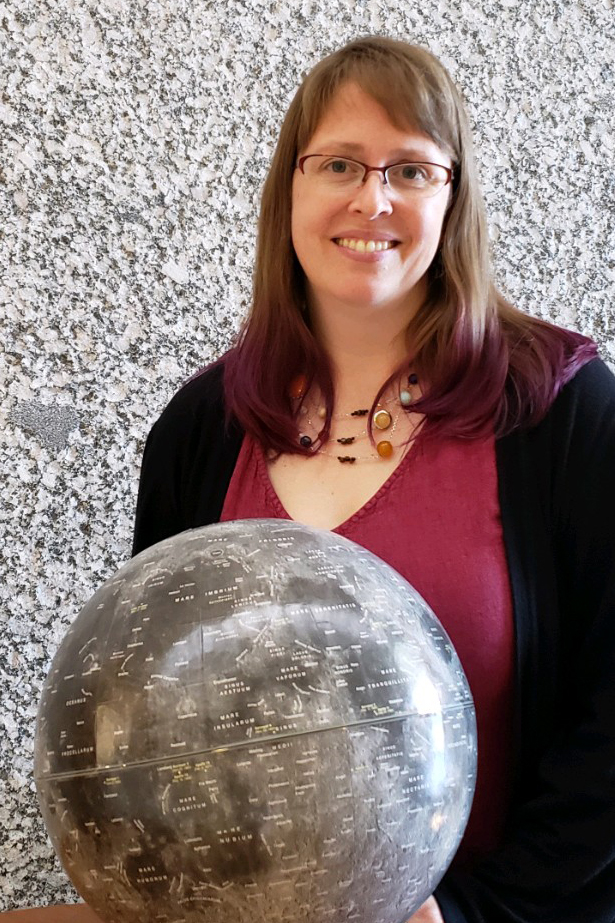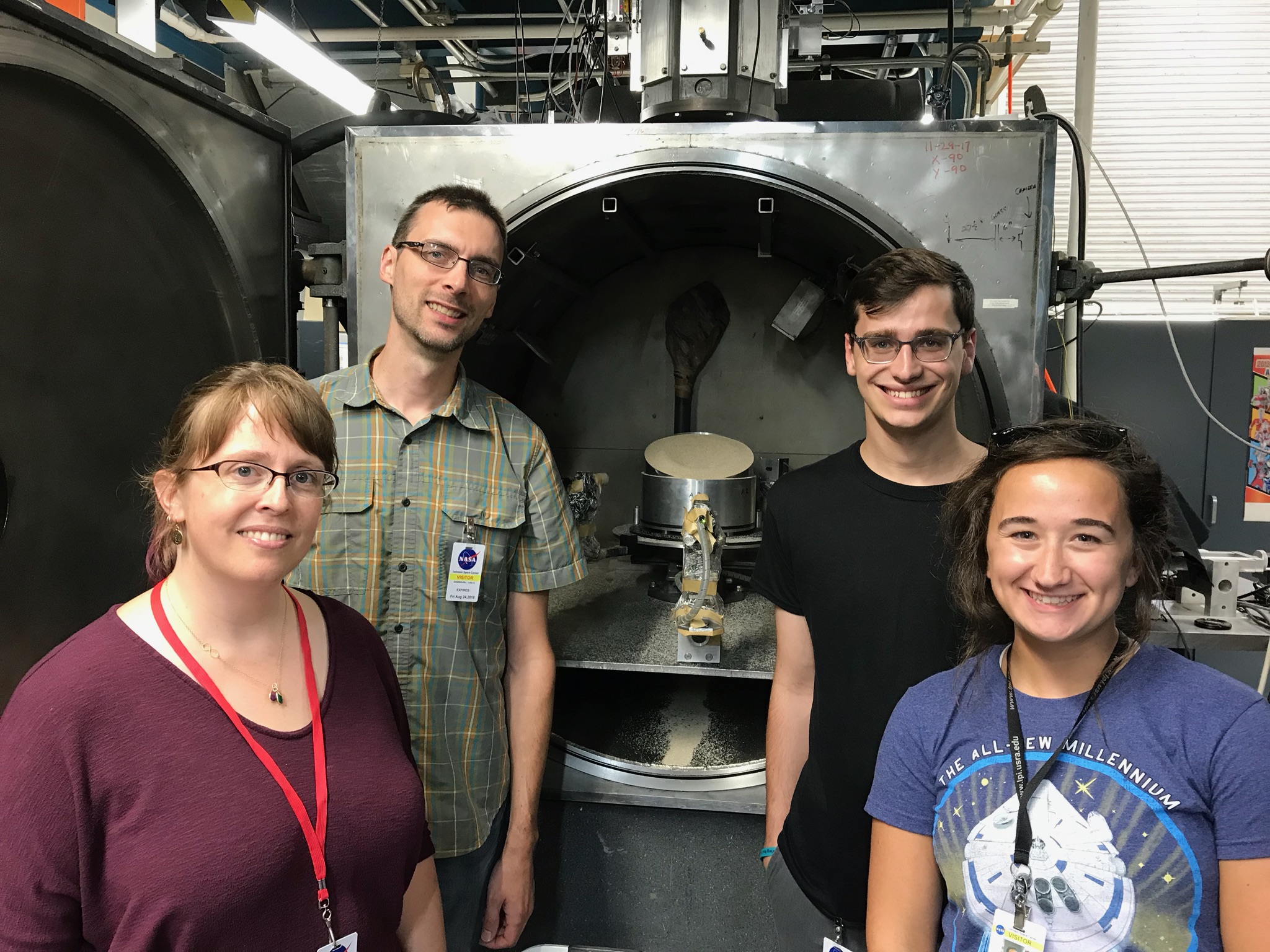 Dr. Jennifer Anderson, a Winona State professor and planetary geologist conducting research in impact cratering at NASA Johnson Space Center, helped receive a 1.1 million dollar grant as a Co-Investigator on a proposal to NASA’s Solar Systems Workings program. The funding was achieved, in part, through data analysis work done by WSU undergraduate students.
Dr. Jennifer Anderson, a Winona State professor and planetary geologist conducting research in impact cratering at NASA Johnson Space Center, helped receive a 1.1 million dollar grant as a Co-Investigator on a proposal to NASA’s Solar Systems Workings program. The funding was achieved, in part, through data analysis work done by WSU undergraduate students.
The Principal Investigator (scientist in charge of the entire proposal) is Dr. Christopher Cline, a young scientist who recently joined the Experimental Impact Laboratory team at Johnson Space Center where Dr. Anderson and her students have conducted impact cratering experiments since 2007.
The Solar Systems Workings program is a highly competitive grant with a funding success rate of 11% (roughly 1 out of 10 proposals funded) which means that successful NASA proposals are typically submitted 2-3 times before being accepted. Since this was Dr. Cline’s first research proposal submission to any NASA program, Dr. Anderson said, “we never expected to be funded in the first year.” When she and her colleagues received the confirmation call, Dr. Anderson was “jumping up and down screaming ‘I can’t believe it!’”
The proposal, titled “The Role of Small-Scale Target Heterogeneities in the Formation and Morphology of Small Craters,” focuses on what happens when there are buried rocks and boulders underneath the surface of the Moon and how these fragments affect the material ejected during a meteoritic impact.
Dr. Anderson says her work surrounding impact cratering comes from a desire to understand “the origin of the Earth and its early evolution by studying the Moon’s surface.” Since the Earth’s surface is very active, impact craters erode away and their existence is erased. This erosion causes scientists to look to the Moon as a preserved record of what the Earth’s surface would look like from its earliest days four billion years ago.

Photo taken summer 2018
Recent Winona alums Jordan Ebel ‘19, Leah Dechant ‘20, and current student Ryan Taitano ‘21, played an instrumental role in the proposal’s success. According to Dr. Anderson, “undergraduate students at Winona State University did a ton of the processing and analysis that allowed us to get this money.” “If we didn’t have the undergrads, we wouldn’t have the ability to get this level of work done.”
Ebel, in particular, worked with GIS software (Geographical Information Systems) to make three-dimensional maps of the impact craters for further analysis of geographical data. Ebel learned how to navigate GIS, teaching four Ph.D. scientists and the other undergraduate students the techniques used now with every shot at the Experimental Impact Laboratory. Ebel went on to get a job at a GIS firm in Madison, Wisconsin.
Through Dr. Anderson’s work, WSU will receive a subgrant of $198,000 divided over three years. This funding will allow her to hire a new undergraduate student each year as research assistants and take 1-2 students for a week or two at a time to conferences and labs in Houston, Texas.
This is the second time Dr. Anderson has received NASA funding. In 2016, she and her colleagues at Johnson Space Center were awarded a grant that funded similar research into how strength-layered targets affected crater excavation and final shape. This work paved the way for achievingtheir most recent grant.
Throughout her 16 years at Winona State, Dr. Anderson has taken roughly 15-20 students to tour the lab at NASA Johnson Space Center and has had 6-7 work at the Center for a week or more doing lab prep and experiments. Dr. Anderson has also taken students to both the Lunar and Planetary Science Conference and the Geological Society of America Conference to present their work.
“It’s really exciting for them to be able to go down and work at NASA”, says Dr. Anderson. These trips offer a singular opportunity for hands-on research and exposure to the professional world of Geoscience that she works to provide her students year after year.
For more information, contact the University Communications Office at wsunews@winona.edu.
